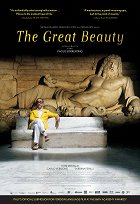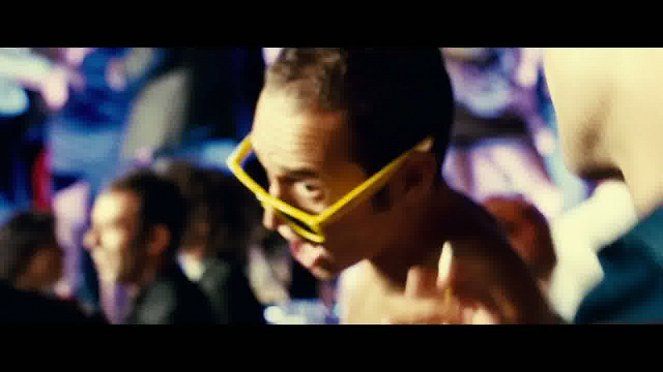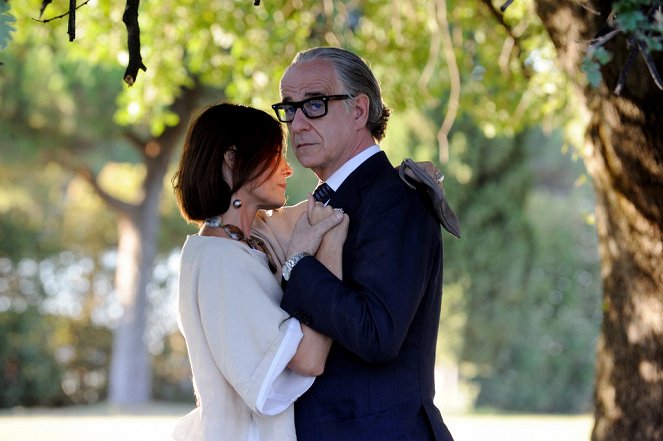Realização:
Paolo SorrentinoCâmara:
Luca BigazziMúsica:
Lele MarchitelliElenco:
Toni Servillo, Sabrina Ferilli, Carlo Verdone, Carlo Buccirosso, Isabella Ferrari, Giorgio Pasotti, Franco Graziosi, Serena Grandi, Luca Marinelli (mais)Streaming (2)
Sinopses(1)
Aristocratic ladies, social climbers, politicians, high-flying criminals, journalists, actors, decadent nobles, prelates, artists and intellectuals - whether authentic or presumed - form the tissue of these flaky relationships, all engulfed in a desperate Babylon which plays out in the antique palaces, immense villas and most beautiful terraces in the city? They are all there, and they are not seen in a good light? Jep Gambardella, 65, indolent and disenchanted, his eyes permanently imbued with gin and tonic, watches this parade of hollow, doomed, powerful yet depressed humanity. A moral lifelessness enough to make one's head spin? And in the background, Rome in summer. Splendid and indifferent, like a dead diva? (texto oficial do distribuidor)
(mais)Vídeos (3)
Críticas (10)
Episódios da vida da elite romana, que são um glamour cinematográfico em si mesmos. Uma joia pictórica, abstrata não só visualmente mas também no seu conteúdo. Não pode ser absorvido de uma só vez, a enorme quantidade de pensamentos e reflexões exige visões repetidas. E mesmo que não os entenda a todos novamente, continuará a estar enfeitiçado pela atmosfera e elegância do filme. Uma harmonia de cinematografia e edição que deixa a mente parada. Sorrentino é um extraterrestre. O disco de abertura de A Grande Beleza deixa o todo O Grande Gatsby atrás.
()
A lot of ideas, a whole bunch of opinions and a brutal deal of philosophizing. And on top of that you get a visual side that will make many an eye melt away. I accept all that, but at the same time it wasn’t an easy movie for me to handle the first time. I will definitely watch it again… someday. But now please give me a moment to fully realize what it was that I actually saw. The Great Beauty is a crazy critique of a society. A critique of fleetingness, arrogance, vanity… and some of the scenes were so crazy I don’t think I will ever get them out of my head.
()
Crisis as a pose, beauty as the only principle of construction. Sometimes it works wonderfully (the introduction and the conclusion), whilst other times it's empty, ostentatious, unnecessarily eloquent and awkwardly theatrical. Even the biting irony is only about halfway there. Sorrentino is an excellent director, but unlike Fellini's "Roman frescoes", which are internally experienced and in every chord accurate, he realizes the idea of a nostalgic protagonist in crisis much less convincingly, but all the more heinously and loudly. A film that plays at being a classic just like the protagonist plays at being a blessed man of the world. Sorrentino had already made films that are an order of magnitude better, but also less affectionate.
()
“È solo un trucco.” Sorrentino picks up where Fellini left off. The exchange of views between Jep and Wilhelmina the girls from the convent school, separated from the protagonist by a screen, is strikingly reminiscent of the ending of La Dolce Vita. Whereas Marcello is only just entering the world of Rome’s upper crust, Jep Gambardella has already been there and done that, and (later) understood that authentic life is lived on the other side, not only in the spatial sense, but also in the temporal sense – the protagonist takes refuge from the all-pervasive emptiness in memories of his childhood, when he was still unknowledgeable, when he was only just becoming aware. If his wandering as a unknowledgeable flâneur, which we are witnesses to, teaches him anything, it’s the fact that we cannot deny ourselves or our own story. ___ The most spiritually valuable moments of Jep’s profane existence are not the direct confrontation with religious symbols, but encounters with innocence (girls, lovers kissing) and with passing time (the time-lapse photography project) and brief glimpses into reality, which is just as fleeting as beauty and love. A very brief encounter with Fanny Ardant, who elegantly carries with her the characters from every film in which she has appeared, brings about an hour-long visit to a church. During these moments, Jep perhaps realises that though he may know everyone and can go anywhere, the values that are worth striving for remain difficult for him to attain. ___ The Great Beauty is a film of a time and society without narrative potential. All of the stories had already been told, so what remains is only the recycling of familiar situations and mechanical alteration of the actors, roles and props. Time and movement became irrelevant. Despite that, Sorrentino managed to make a film that pulsates with life, though it is about a world that rejects two basic characteristics of cinema and also about a life that has no direction. ___ Thanks to the ceaseless movement of the camera, the surprising alternation of shot types (the various ways in which they are linked would be worthy of a separate analysis), the placement of unexpected objects in the mise-en-scéne and the lively soundtrack, which doesn’t distinguish between Bizet and Italian pop, The Great Beauty never stops flowing and doesn’t let you leave the cinema until the house lights come up. Only later you can start to process the implied ideas and fill in the empty space that has been spread out before you. 85%
()
Fellini for the new millennium, or an ode to Rome and the life of the campaign city’s upper crust packaged in a portrait of an old dandy looking back on his own life while raising question about the essence of artistic creation, creative distinction and faith. With its style straddling the line between parable, dreams and magical realism, The Great Beauty inevitably evokes the Fellini classics La Dolce Vita, 8½ and Roma, but it does not in any way copy or plagiarise them. It just addresses the same themes in the same spirit, though with respect to the age and misanthropic nature of the main character, it focuses on different elements and values.
()



Publicidade